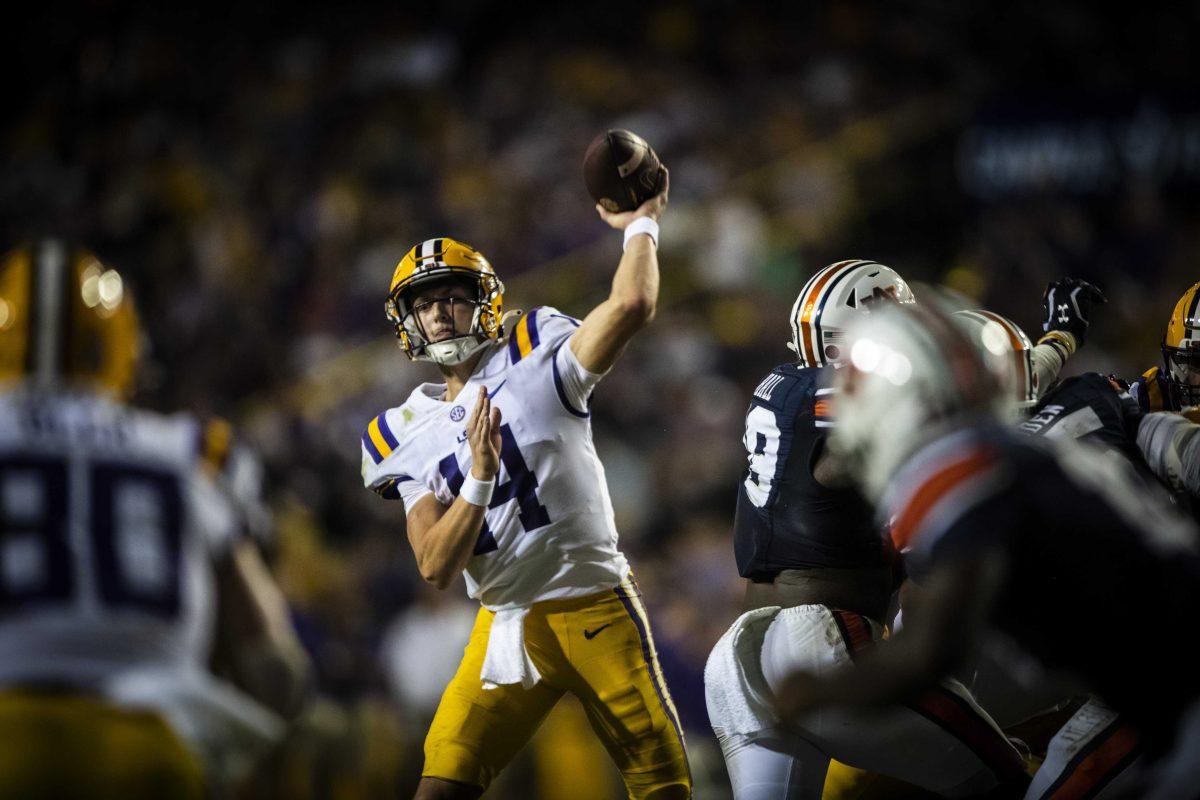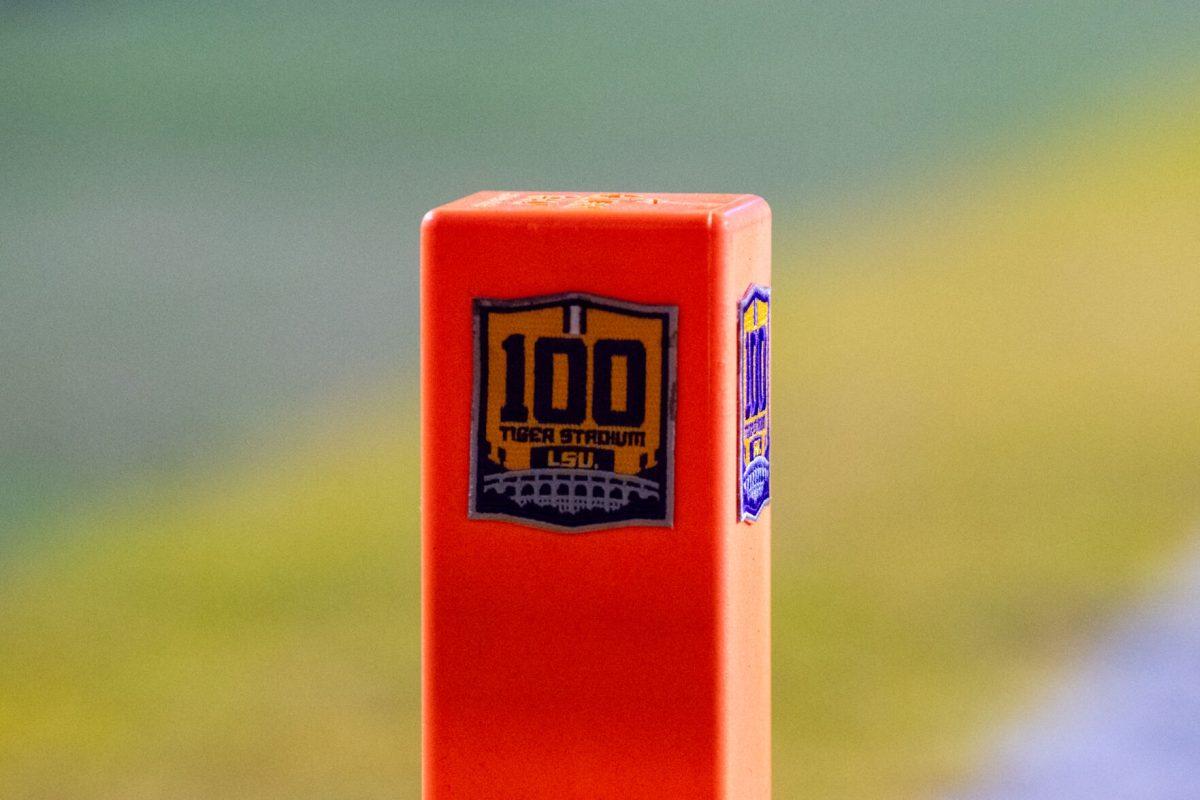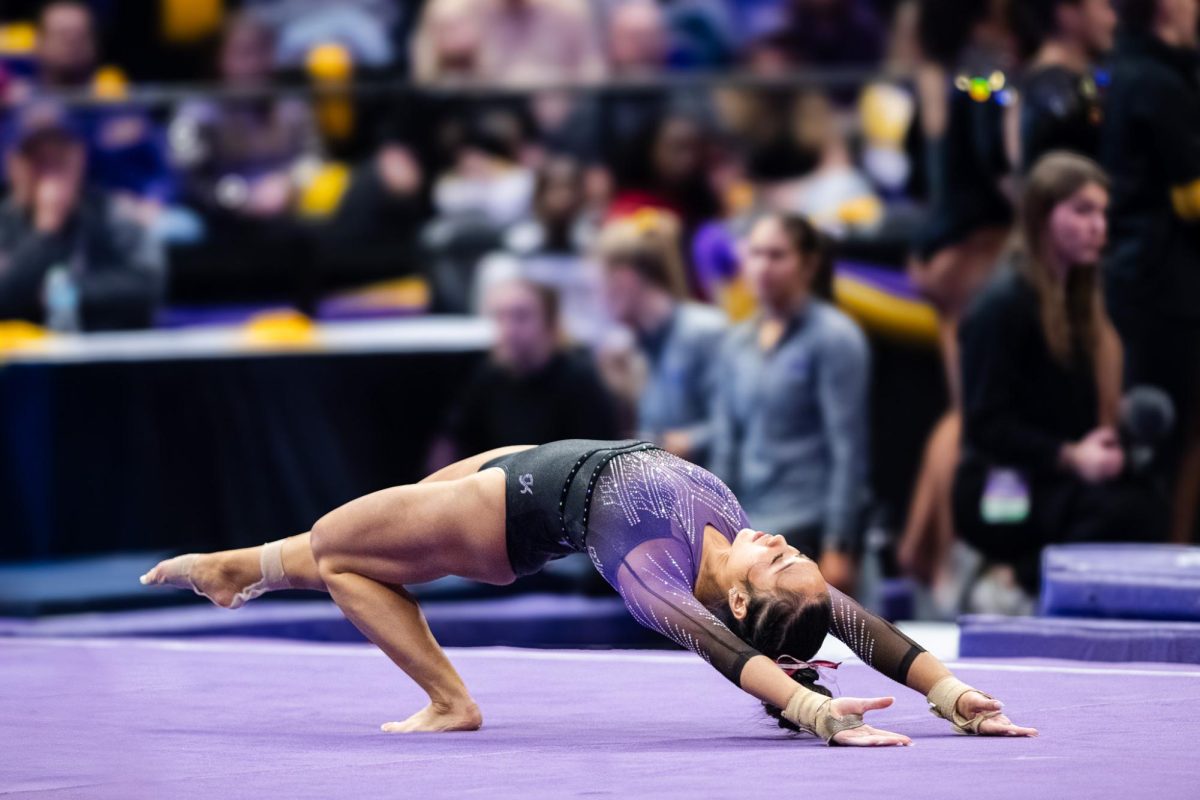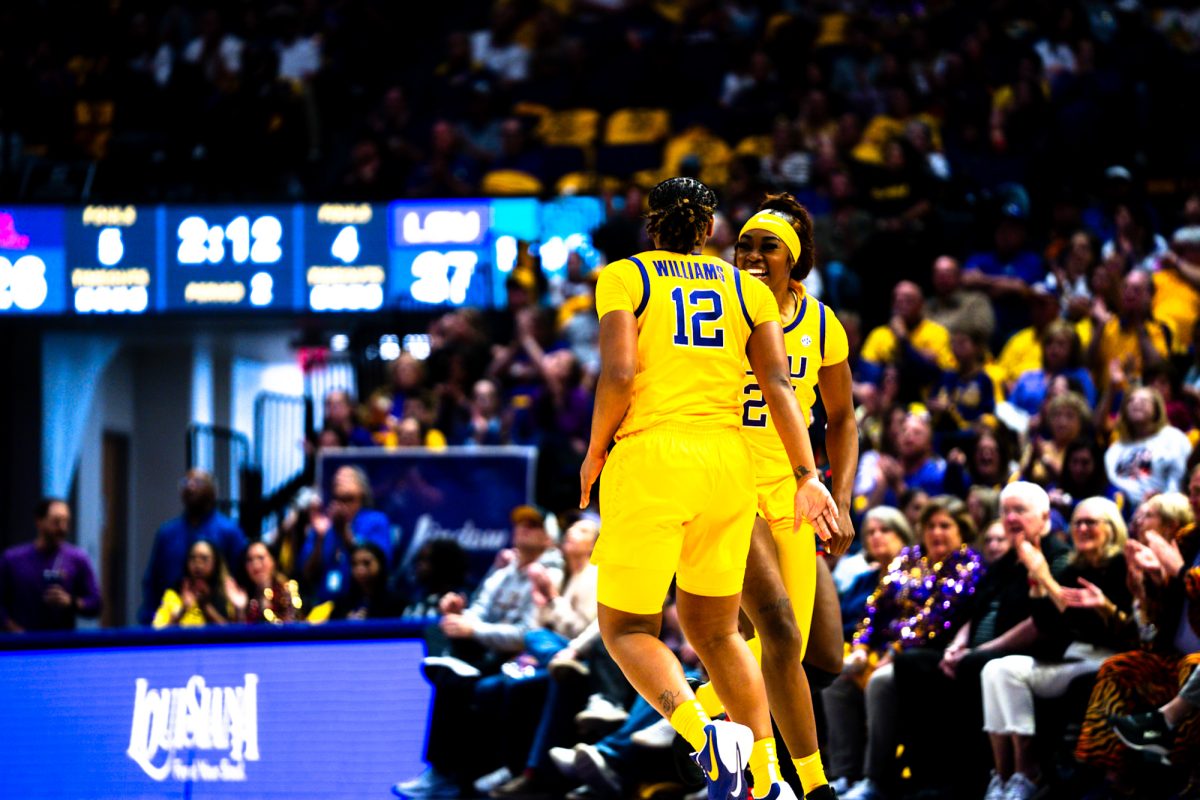A quarter and a half into LSU’s painful 24-19 loss to Auburn, the Bayou Bengals were in control. The Auburn pocket was caving quickly under pressure from the LSU front seven, and the offense looked explosive. Max Johnson looked sharp, and Kayshon Boutte dominated the first quarter.
Then, with five minutes left in the first half, Auburn quarterback Bo Nix crouched under center on a Fourth and Two just outside the red zone. A tight end and a fullback flanked him on his right. Nine Tiger defenders crouched in the box. Nix’s Tigers trailed 13-0 — if LSU stops them here, they could face a 20-point hole at halftime.
As the play clock wound down, neither side had time to grasp the enormity of the moment. Neither did the fans, a deafening crowd of nearly 98,000. But those in attendance would soon realize that the game — and maybe LSU’s season — would turn on this play.
How important was it for LSU to stop Auburn here?
First, look up in the stands. Saturday marked the return of Death Valley in all its might. As Nix called the play on fourth down and the previous third down, he shouted over deafening noise, the first true roar of Tiger Stadium in 672 days. This game — this season — matters.
Then, look to the sidelines. Ed Orgeron yearned to go home with a win. His team had quieted critics the week before, when they executed a smart game plan and beat Mississippi State. With a road tilt in Kentucky up next, Orgeron needed his team confident before they played the undefeated Wildcats, who earlier in that day toppled No. 10 Florida.
Finally, look ahead — to upcoming dates with Florida, Ole Miss, Alabama, Arkansas and Texas A&M. Of the SEC gauntlet, a home game at night against a struggling Auburn team was arguably the most winnable game. It may be the last time LSU is favored this season.
From the 35-yard line, Orgeron watched Nix take the snap and roll to his right. The play was designed to hit a receiver running in the flat, but LSU had it covered.
Major Burns and Bugg Strong contained Nix’s scramble, but the quarterback evaded both tacklers and veered left, pump-faked and froze another would-be tackler before sprinting to his sideline. Nix kept his eyes downfield as the speedy Micah Baskerville zeroed in on him. He then slipped through that tackle, juked out of another one, stepped back and fired to an open receiver in the end zone as four Tiger defenders brought him down.
Touchdown. LSU 13 – Auburn 7.
LSU mostly succeeded in pressuring the quarterback. But it didn’t finish the job: Nix broke tackle after tackle all night, scrambling outside the pocket and hitting receivers on the run. LSU ended the game with six hurries and zero sacks. The plays in which Nix evaded the rush told the story of the game: LSU surely had the game in control, but ultimately, like Nix, it slipped away. The defense wore out, and the offense, out of sync and without a ground game to rely on, sputtered. Auburn took the lead late in the second half and went home with a win.
“Very disappointing loss,” Orgeron said. “Their quarterback, we couldn’t get him down. He made some tremendous plays, so give him credit. That was the ballgame.”
In the first quarter, the LSU offense looked electric. Johnson somehow threw for 122 yards on the opening drive. He connected with Boutte on a beautiful 31-yard touchdown, when the lefty dropped the ball perfectly between two defenders, right into his receiver’s hands. Offensive Coordinator Jake Peetz had seemingly decided to abandon their troublesome run game and ordered aggressive, downfield passes. He called only one run play in the opening stanza, and seven more by halftime.
But, when it mattered most, Peetz could not get on the same page with Johnson and his offense.
Before Nix’s theatrics, LSU had a chance to go up 17-0. They faced a fourth and one from the Auburn three-yard line with eight minutes to play in the second quarter. The play clock wound down before Johnson was ready, and Orgeron burned his final timeout of the half. On the play, LSU jumped offsides, and they kicked a field goal: 13-0.
The first drive of the second half looked promising: LSU had a first and goal at the five. But a run for no gain and two incompletions led to a field goal. They had a chance to go up two scores, but didn’t. 16-10.
After the game, Johnson said, in hindsight, his offense should have thrown the ball on first down in the red zone and stayed aggressive.
“We should’ve taken more shots,” he said.
On the second drive of the half, a holding penalty by Austin Deculus and a sack pushed LSU back. Cade York converted on a 51-yard field goal, and LSU’s lead was 19-10. The purple and gold followed those two drives with three consecutive punts. Johnson was under duress, the receivers struggled to separate and the backs had no room to run. Post game, the culprit of LSU’s collapse turned out to be its offensive line.
“I’m really disappointed in that,” Orgeron said. “We have two guys on that offensive line that we won a national championship with. I thought that would’ve been one of the strengths of our football team, but it’s not.”
Meanwhile, Auburn had scored two touchdowns and taken a 24-19 lead. The defensive adjustment LSU had made at halftime — choosing to spy Nix, bull rush the interior and contain the outside (what they call a “cage rush”) — was not working.
LSU still had a chance with two timeouts and three minutes left in the quarter. Johnson and his offense lined up at the 25.
How important was it for LSU to score here?
First, look up at the stands. The Auburn contingent was rowdy, while a nervous silence fell over the LSU fans. Then, look to the sidelines at Orgeron. After a 2020 season in which his players reportedly tuned him out, he needed to be on the same page with his offense at a crucial moment. And finally, look ahead: at 75 yards of green grass, the Tigers must cross before they could score.
The play clock expired before Johnson could snap the ball, and Orgeron called his second timeout. He lifted his headset, clapped in encouragement and walked to the offense, a nervous look on his face. Boos rained down on his offense.
Six plays later, Johnson threw an interception on the fourth down, and Auburn started celebrating. LSU had lost an important game. They fell to 3-2 on the season, and Orgeron is now 8-7 since he won a national championship. Auburn beat LSU in Tiger Stadium for the first time in 22 years.
After the game, the beleaguered coach was asked what went wrong on the play when the play clock expired.
“The play call was in late,” Orgeron said, “then we tried to change it at the line of scrimmage, and we just weren’t well-organized.”









